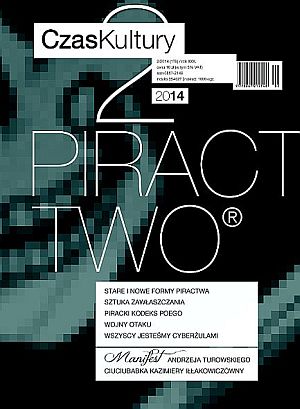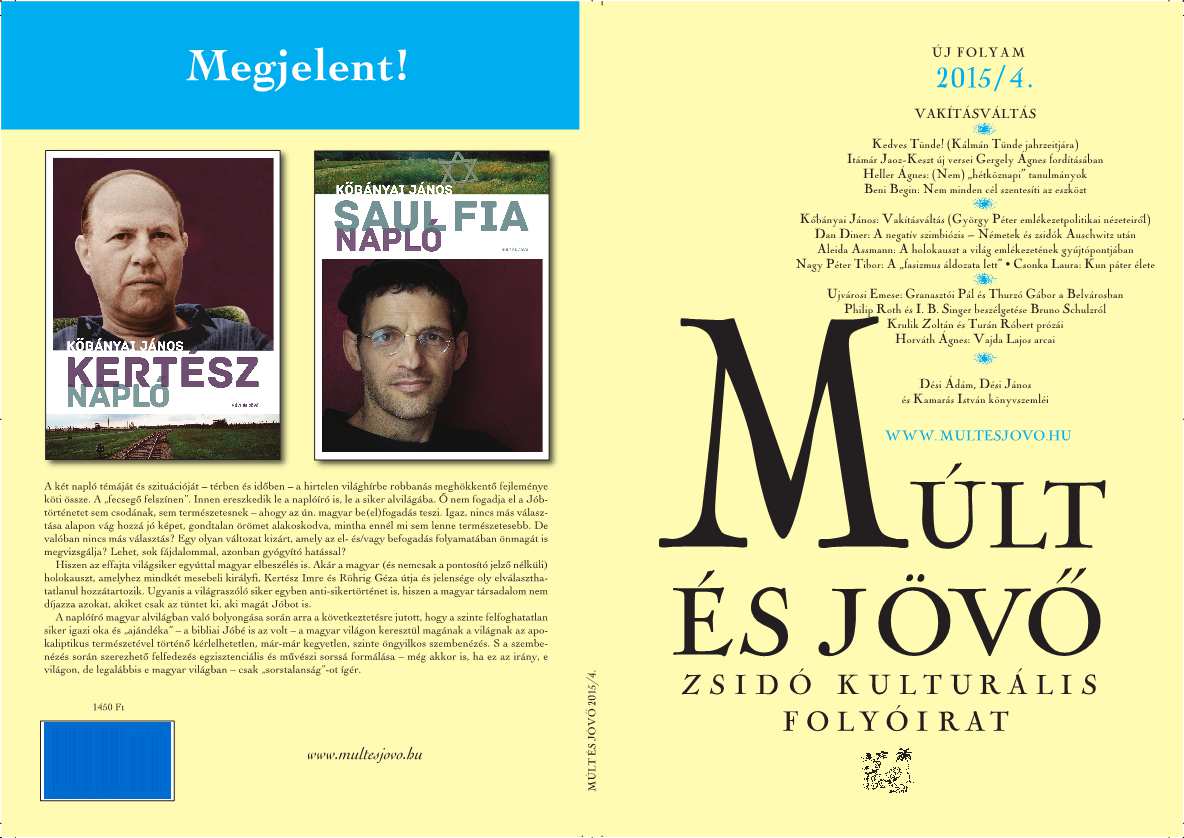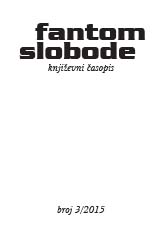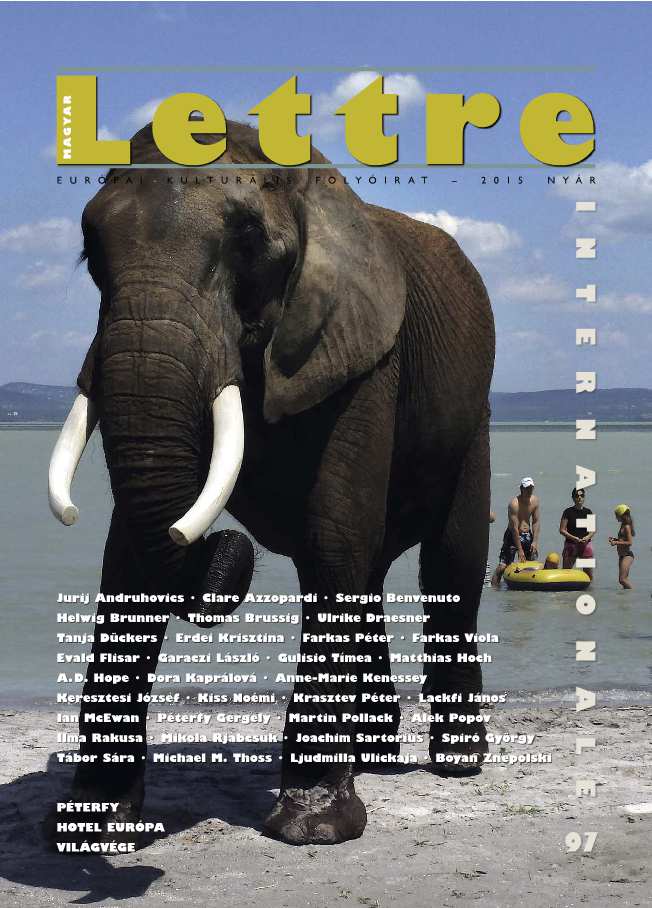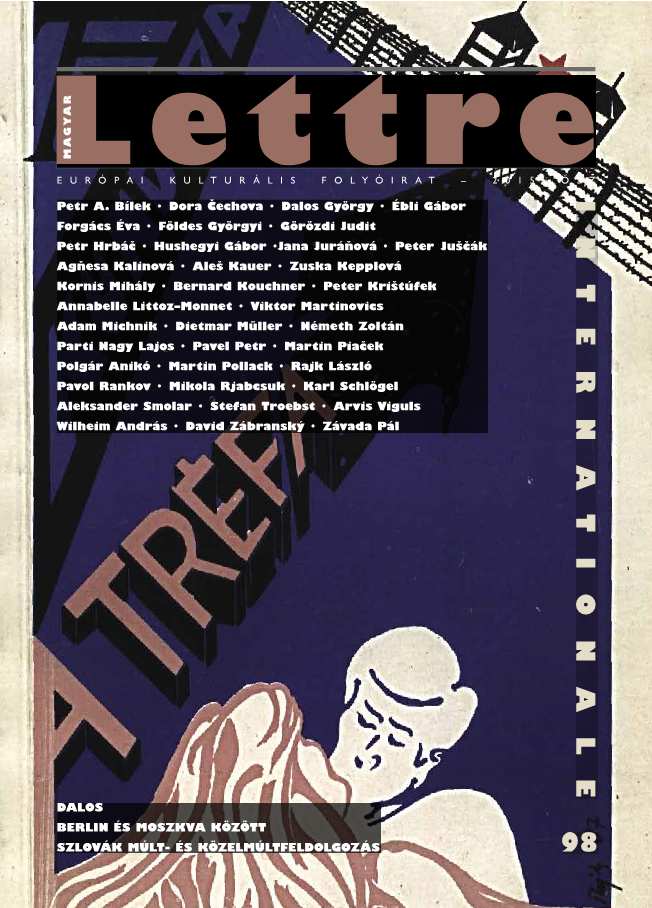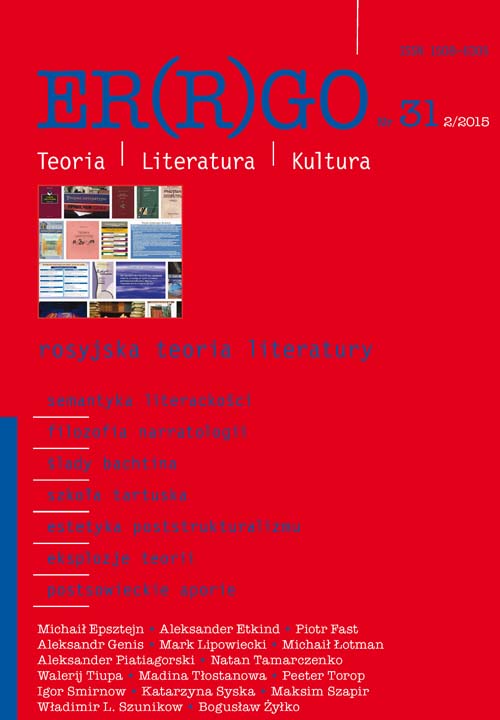
Funkcje trickstera w klasycznej powieści rosyjskiej (z zagadnień metodologii)
Examining the prototype of the trickster and looking at the main directions of its evolution and its changing interpretations, the author identifies the figure of the trickster in the context of cannonical Russian novels, an attempt most original since the trickster has hardly ever attracted attention of Russian critics or literary theorists. Having identified two types of protagonists, the autor suggests that characters built in contrast to main types may be read as evolved forms of the ancient figure of the trickster.
More...
